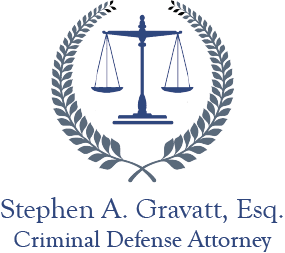AGGRAVATED ASSAULT—N.J.S.A. 2C:12-1(b)
Assault NJ
ILLUSTRATIVE EXAMPLE: You are hanging with a couple of friends outside a local pub when a couple of guys from the east side of town pull up. You had a bunch of beers and you have a pair of brass knuckles in your pocket and when these guys come spoiling for a fight you slip them on and start slugging. Suddenly a couple of uniformed police officers pull up next to all of you. One gets out of his car, identifies himself as a police officer and grabs you. In that split second, you suddenly lash out at the officer flailing your arms. He tackles you, subdues you, cuffs you and throws you in the back of his cruiser. In addition to having unlawful possession of a weapon, engaging in willful fighting or worse, have you just committed a serious crime?
(b) “Aggravated assault. A person is guilty of aggravated assault if he:
(1) Attempts to cause serious bodily injury to another, or causes such injury purposely or knowingly or under circumstances manifesting extreme indifference to the value of human life recklessly causes such injury; or
(2) Attempts to cause or purposely or knowingly causes bodily injury to another with a deadly weapon; or
(3) Recklessly causes bodily injury to another with a deadly weapon; or
(4) Knowingly under circumstances manifesting extreme indifference to the value
of human life points a firearm, as defined in section 2C:39-1f., at or in the
direction of another, whether or not the actor believes it to be loaded; or
(5) Commits a simple assault as defined in subsection a. (1), (2), or (3) of this
Section upon:
(a) Any law enforcement officer acting in the performance of his duties while in uniform or exhibiting evidence of his authority or because of his status as a law enforcement officer; or
(b) Any paid or volunteer fireman acting in the performance of his duties
while in uniform or otherwise clearly identifiable as being engaged in the
performance of his duties as a firemen; or
(c) Any person engaged in emergency first-aid or medical services acting
in the performance of his duties while in uniform or clearly identifiable as
being engaged in the performance of emergency first-aid or medical services;
or
(d) Any school board member, school administrator, teacher, school bus
driver, or other employee of a school board while clearly identifiable as
being engaged in the performance of his duties or because of his status as
a member or employee of a school board or any school bus driver employed
by an operator under a contract to a school board while clearly identifiable
as being engaged in the performance of his duties or because of his status
as a school bus driver; or
(e) Any employee of the Division of Youth and Family Services while
clearly identifiable as being engaged in the performance of his duties or
because of his status as an employee of the division; or
(f) Any justice of the Supreme Court, judge of the Superior Court, judge
of the Tax Court or municipal judge while clearly identifiable as being
engaged in the performance of judicial duties or because of his status as
a member of the judiciary; or
(g) Any operator of a motorbus or the operator’s supervisor or any
employee of a rail passenger service while clearly engaged in the performance
of his duties or because of his status as an operator of a motorbus or as the
operator’s supervisor or as an employee of a rail passenger service; or
(6) Causes bodily injury to another person while fleeing or attempting to elude a
law enforcement officer in violation of subsection b. of N.J.S.A. 2C:29-2 or while operating a motor vehicle in violation of subsection c. of N.J.S.A. 2C:20-10. Notwithstanding any other provision of law to the contrary, a person shall be strictly liable for a violation of this subsection upon proof of a violation of
subsection b. of N.J.S.A. 2C:29-2 or while operating a motor vehicle in
violation of subsection c. N.J.S.A. 2C:20-10 which resulted in bodily injury
to another person; or
(7) Attempts to cause significant bodily injury to another or causes significant
bodily injury purposely or knowingly, or under circumstances manifesting
extreme indifference to the value of human life recklessly causes such
significant bodily injury; or
(8) Causes bodily injury by knowingly or purposely starting a fire or causing an
explosion in violation of N.J.S.A. 2C:17-1 which results in bodily injury to
any emergency services personnel involved in fire suppression activities,
rendering emergency medical services resulting from the fire or explosion or
rescue operations, or rendering any necessary assistance at the scene of the fire
or explosion including any bodily injury sustained while responding to the scene of a reported fire or explosion. For the purposes of this section “emergency services personnel” shall include, but not be limited to, any paid or volunteer fireman, any person engaged in emergency first-aid or medical services and any law enforcement officer. Notwithstanding any other provision of law to the contrary, a person shall be strictly liable for a violation of this paragraph upon proof of a violation of N.J.S.A. 2C:17-1 which resulted in bodily injury to any emergency services personnel; or
(9) Knowingly, under circumstances manifesting manifesting extreme indifference
to the value of human life, points or displays a firearm, as defined in subsection
f. of N.J.S.A. 2C:39-1, at or in the direction of a law enforcement officer; or
(10) Knowingly points, displays or uses an imitation forearm, as defined in
subsection f. of N.J.S.A. 2C:39-1, at or in the direction of a law enforcement
officer with the purpose to intimidate, threaten or attempt to put the officer
in fear of bodily injury or for any unlawful purpose; or
(11) Uses or activates a laser sighting system or device, or a system or device
which, in the manner used, would cause a reasonable person to believe that
it is a laser sighting system or device, against a law enforcement officer
acting in the performance of his duties while in uniform or exhibiting
evidence of his authority. As used in this paragraph, “laser sighting system
or device” means any system or device that is integrated with or affixed to
a firearm and emits a laser light beam that is used to assist in the sight
alignment or aiming of the firearm.
GRADATION OF AGGRAVATED ASSAULT
Aggravated assault under subsections b. (1) and b. (6) is a crime of the second
degree; under subsections b. (2), b. (7). B. (9) and b. (10) is a crime of the third
degree; under subsections b. (3) and b. (4) is a crime of the fourth degree; and
under subsection b. (5) is a crime of the third degree if the victim suffer bodily
injury, otherwise it is a crime of the fourth degree. Aggravated assault under
section b. (8) is a crime of the third degree if the victim suffers bodily injury; if
the victim suffers significant bodily injury it is a crime of the second degree.
Aggravated assault under subsection b. (11) is a crime of the fourth degree.”
There are three main fundamental concepts which run throughout the aggravated assault statutory scheme.
The first has to do with the state of mind of the defendant (actor) when the act was committed, e.g., acted with “strict liability”, with “purpose”, or with “knowledge” or “under circumstances manifesting extreme indifference to the value of human life recklessly causes…” Strict liability essentially means that defendant’s level of culpability need not be determined in order to reach a finding of guilt. If you understood the consequences of your conduct on any level and your conduct resulted in the performance of the proscribed conduct, you are guilty and what you were thinking as the conduct unfolded is immaterial. State v. Abdolrazek. Under N.J.S.A. 2C:2-2(b)(1), a person acts purposely if it was his conscious object to engage in assaultive conduct calculated to inflict bodily injury. Under N.J.S.A. 2C:2-2(b)(2), a person acts “knowingly” with respect to the result of his conduct or the attendant circumstances if he is aware that it is practically certain that his conduct will cause (bodily injury). Under N.J.S.A. 2C:2-2(b)(3) a person acts recklessly with respect to a material element of an offense when he consciously disregards a substantial and unjustifiable risk that (bodily injury) will result from his conduct. Further, he acts with extreme indifference to the value of human life if he, for example, swings a golf club at a very vulnerable part of the body, e.g., skull, versus the hind quarters or gluteous maximus. It says, ”I don’t care if my conduct could cripple or kill you” versus “I don’t care if my conduct might injure you”.
The second concept is the degree of injury sustained by the victim as a direct result of defendant’s (actor) conduct, e.g., “serious bodily injury” versus “significant bodily injury” versus “bodily injury”. This is a means of quantifying the level of injury caused for purposes of imposition of punishment on sentencing.
A third obvious concept in this statute is the Legislature’s intent to severely punish anybody who assaults, or attempts to assault, any law enforcement officer or other public officials acting while performing their official employment duties.
By enlarge, the greater the level of culpability the actor acted with combined with the greater the level of injury sustained by the victim as a proximate cause of the actor’s conduct, the greater the likely hood of the imposition of significant jail time upon conviction.
2C CRIMINAL CODE SENTENCING GUIDELINES
The imposition of jail time terms upon sentencing is governed by N.J.S.A. 2C:43-1 through 22. If convicted of a fourth degree crime, you would be subject to monetary fines of up to $10,000.00, plus possible jail time between a low of one (1) year and a high of eighteen (18) months per count, plus a criminal record; N.J.S.A. 2C:43-3(b) On a third degree crime, monetary fines of up to $15,000.00, plus possible jail time from a low of four (4) years and a high of five (5) years per count, plus a criminal record; N.J.S.A. 2C:43-3(b), and on a second degree crime, monetary fines up to $150,000.00, plus possible jail time from a low of five (5) years to a high of ten (10) years, plus a criminal record; N.J.S.A. 2C:43-3(a) on a fist degree crime, monetary fines of up to $200,000.00 possible jail time ranges from a low of ten (10) years to a high of twenty (20) years, plus a criminal record. N.J.S.A.2C:43-3(a) Under N.J.S.A. 2C: 44-1 (a) through (e), jail terms start at the presumptive amount, e.g., right in the middle of the range and then can be lowered down to a minimum or raised to a maximum based on a weighing of the “aggravating” versus the “mitigating factors” N.J.S.A. 2C:44-1(e).
The answer to the question is YES. You just took a swing at a uniformed police officer in the course of performing his official duty. It does not matter that you only gave him a bruise, because you inflicted “bodily injury”. This constitutes a crime of the third degree. This is nothing to mess around with. The best practice is to retain a skilled and experienced attorney immediately to avoid jail time and a criminal record.


